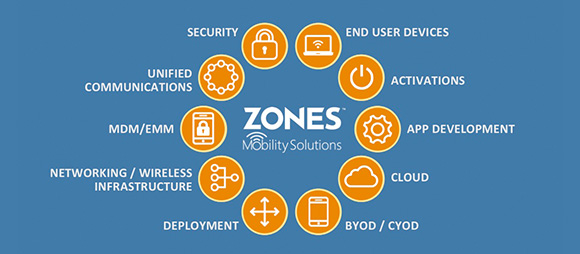For businesses with dynamic device needs, DaaS is the answer
In today’s business world, people are no longer content just to sit at their desks and handle their daily work responsibilities on antiquated...
2 min read
![]() Zones
:
Aug 15, 2019 2:28:51 AM
Zones
:
Aug 15, 2019 2:28:51 AM

Every year, it gets a little more difficult for corporate IT departments to manage all of their employees’ devices. These aren’t the 1990s anymore – modern professionals are no longer satisfied with just a desktop PC and a desk. To stay productive today, people want powerful PCs in the office, sleek laptops to take on the road and mobile devices that can help them stay connected from anywhere. All of this workplace modernization is a good thing, but it presents all sorts of challenges. How are companies supposed to keep up with all these devices – not to mention the software and services they require?
Here’s the thing: They don’t have to. Not anymore, anyway. Rather than go through all the hassle of procuring devices and software solutions for their employees, companies today have the option of finding a business partner that will handle that work for them. That’s the thinking behind Device as a Service (DaaS), a service model that’s on the rise. With a DaaS provider, companies simply have to sign one contract and pay one monthly subscription fee, and the provider handles the rest. It’s a popular way to minimize IT expenses.
And it’s becoming more popular every day. According to Kenneth Research, the global market for DaaS is growing by 54.7% each year on average, and by 2023, it’ll be worth a total of $66.1 billion. That’s a staggering number, and when you see it, you might think it means only huge mega-corporations can afford to get in the game. But in fact, the opposite is true. Kenneth Research found that small and medium-sized businesses are expected to account for the largest share of the DaaS market over the next half-decade. This makes sense, if you think about it – when running a modest-sized business, you need to be smart about trimming costs and working efficiently if you want to get ahead.
This is, in fact, exactly why most companies are making the move to DaaS. It’s a budget-conscious move – they definitely could purchase all of their employees’ devices and manage them if they wanted to, but given all the services and manpower required, it’s not the efficient way to go. Moving to a DaaS model is a tried-and-true way of trimming capital expenditure from the budget. This will only become more true with the rise of the Internet of Things – the more devices people demand, the more important it becomes to manage them in a cost-conscious way.
DaaS is a great fit for companies that are feeling the pressure from an onslaught of new technologies. New devices aren’t even the half of it – every time a device arrives in the office, there’s also the challenge of managing new operating systems, software packages and security vulnerabilities. If your employees are asking for too much, too fast, a DaaS provider can bail you out of an otherwise difficult situation.
Zones is uniquely well positioned to deliver Workplace Modernization solutions for organizations that need them. Our Solution Architects have over 50 industry-recognized certifications in the design and deployment of such technologies, and we’ve got a wealth of experience working with clients across every industry. What’s more, we have strong relationships with all the major providers – Microsoft, Apple, HP, Dell, Lenovo and more – which means we can always find the right products for you.
Explore the full range of End User Compute & Productivity services we have to offer at Zones. We’ve got what it takes to usher in a digital revolution for your business.

In today’s business world, people are no longer content just to sit at their desks and handle their daily work responsibilities on antiquated...

6th-generation Intel® Core processors deliver advanced Windows 10 features everywhere you go Windows 10 is the right operating system at the right...

The explosion of mobile devices has paved the way for the most connected workforce ever, but does your mobile strategy address the ever growing...